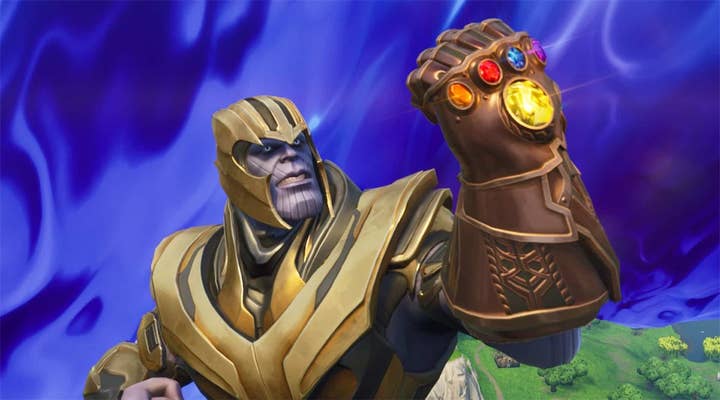Netflix: "We compete with (and lose to) Fortnite more than HBO"
TV and film streaming service points to Epic's battle royale title as a major competitor
Netflix sees Epic Games' Fortnite as one of its biggest competitors, the company told its investors yesterday.
In a letter accompanying its Q4 results, the streaming service told investors that the competition for "consumer screen time" plays out across both mobile and television, and against a "very broad" array of other companies.
"We compete with (and lose to) Fortnite more than HBO," Netflix said, offering Epic's game as the only example of major threats outside of the broadcasting industry.
"There are thousands of competitors in this highly fragmented market vying to entertain consumers... Our growth is based on how good our experience is, compared to all the other screen time experiences from which consumers choose."
This is another indication of just how big Fortnite has become. In November 2018, the various versions of Epic's battle royale title had a total of 200 million registered players -- a number that has almost certainly climbed since then.
"Our growth is based on how good our experience is, compared to all the other screen time experiences from which consumers choose"
Netflix
This week, SuperData's annual report estimated Fortnite's digital revenue for 2018 at $2.4 billion, more "annual revenue [than] any game in history."
However, this trend cuts both ways. While the popularity of Fortnite is evidently more of a consideration for Netflix than the activities of HBO, a recent article on GamesIndustry.biz advised developers to monitor platforms like Netflix when thinking about a game launch.
"There was a busy week in 2017, with Super Mario Odyssey, Wolfenstein II and Assassin's Creed Origins all scheduled for launch," Chris Dring said as one of 'ten things to consider when choosing a video game release date.'
"Yet that wasn't all; it was also the same week the second season of Stranger Things and Thor: Ragnarok were released. Midia Research found that there is a huge crossover, for instance, between Assassin's Creed and Stranger Things fans.
"Ubisoft and Bethesda found themselves going up against other big entertainment properties in terms of share-of-voice, social media buzz and, indeed, time.
"There will have been customers who decided to wait on the games and spend their time that weekend binge-watching Netflix."
Netflix also discussed another way in which its business is crossing over with video games. Following the success of Bandersnatch, an episode of the anthology show Black Mirror that let viewers decide the direction of the story, the company is committed to further exploring interactive fiction using a custom-built technology called "Branch Manager".
"We're thrilled with the global excitement that Bandersnatch has created," Netflix said, "and it serves as a strong example of how we can marry technology and entertainment to evolve video storytelling."
In an article published yesterday, we explored the ways that Bandersnatch employed techniques and principles that the games industry has been using for years, and spoke to the developers on the forefront of an emerging wave of "interactive movie games" -- you can read it here.









